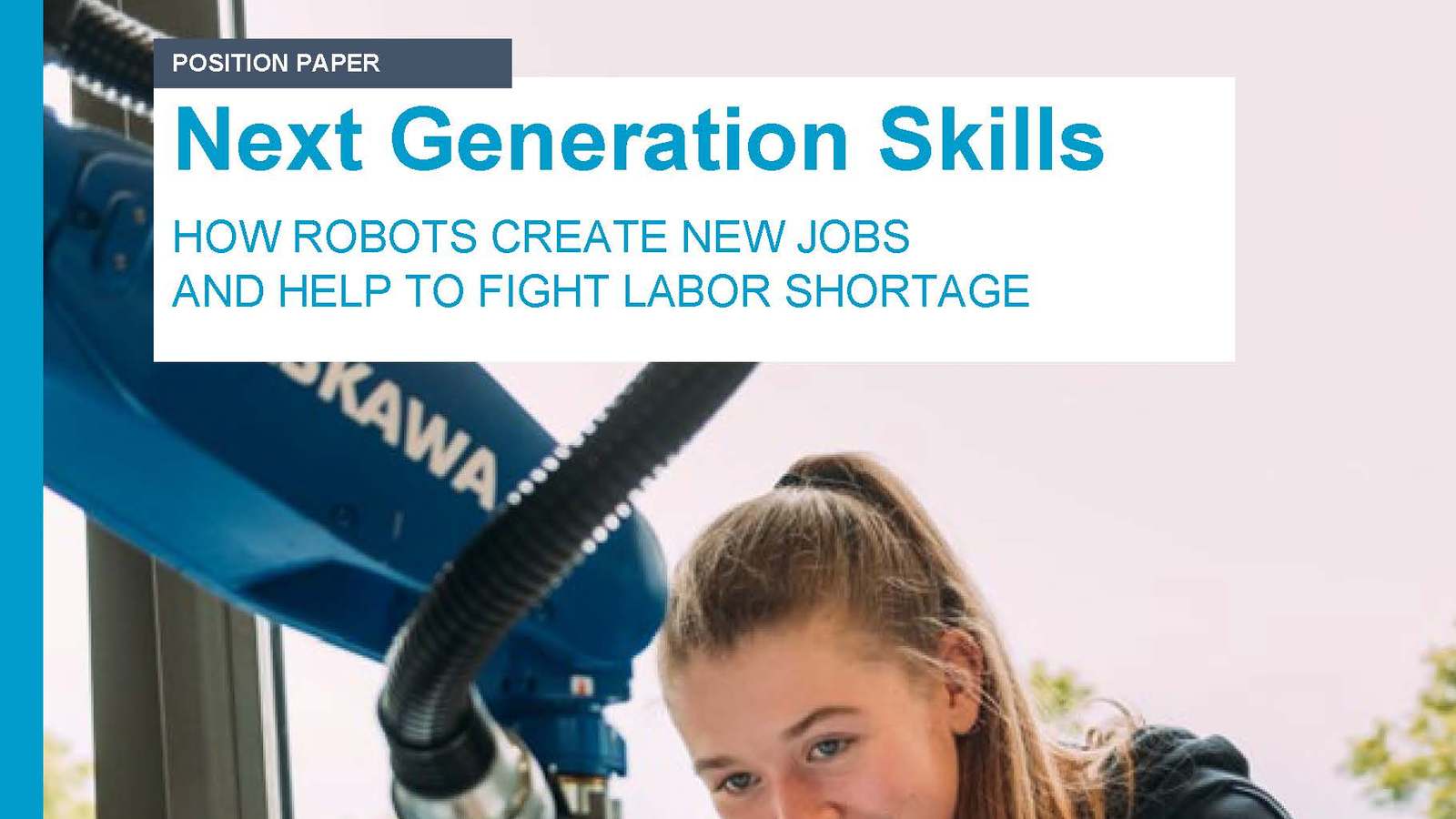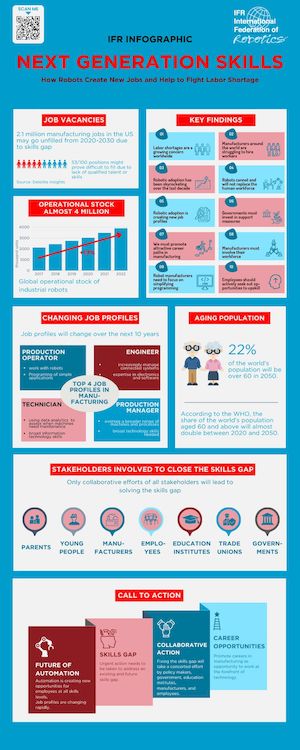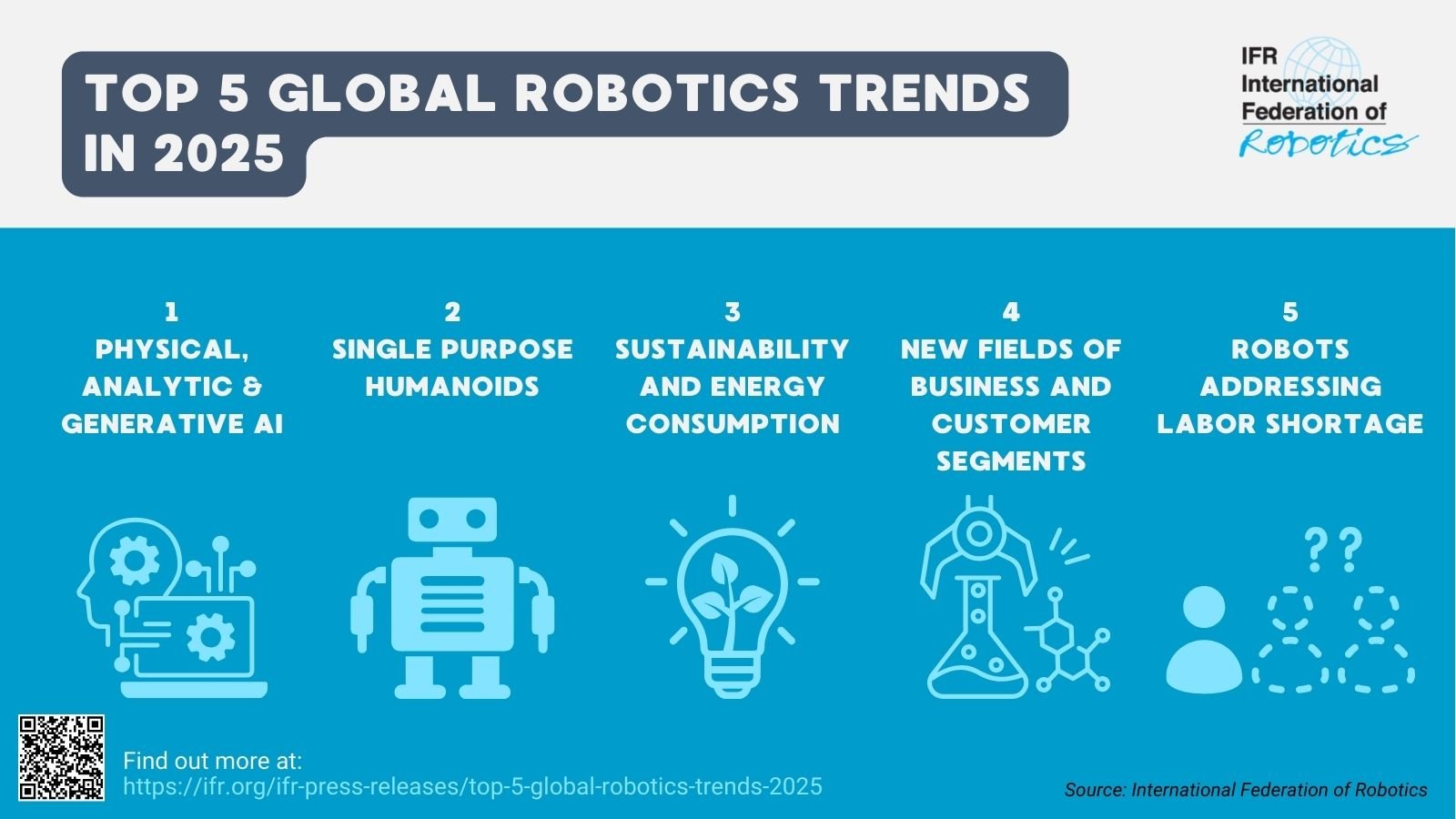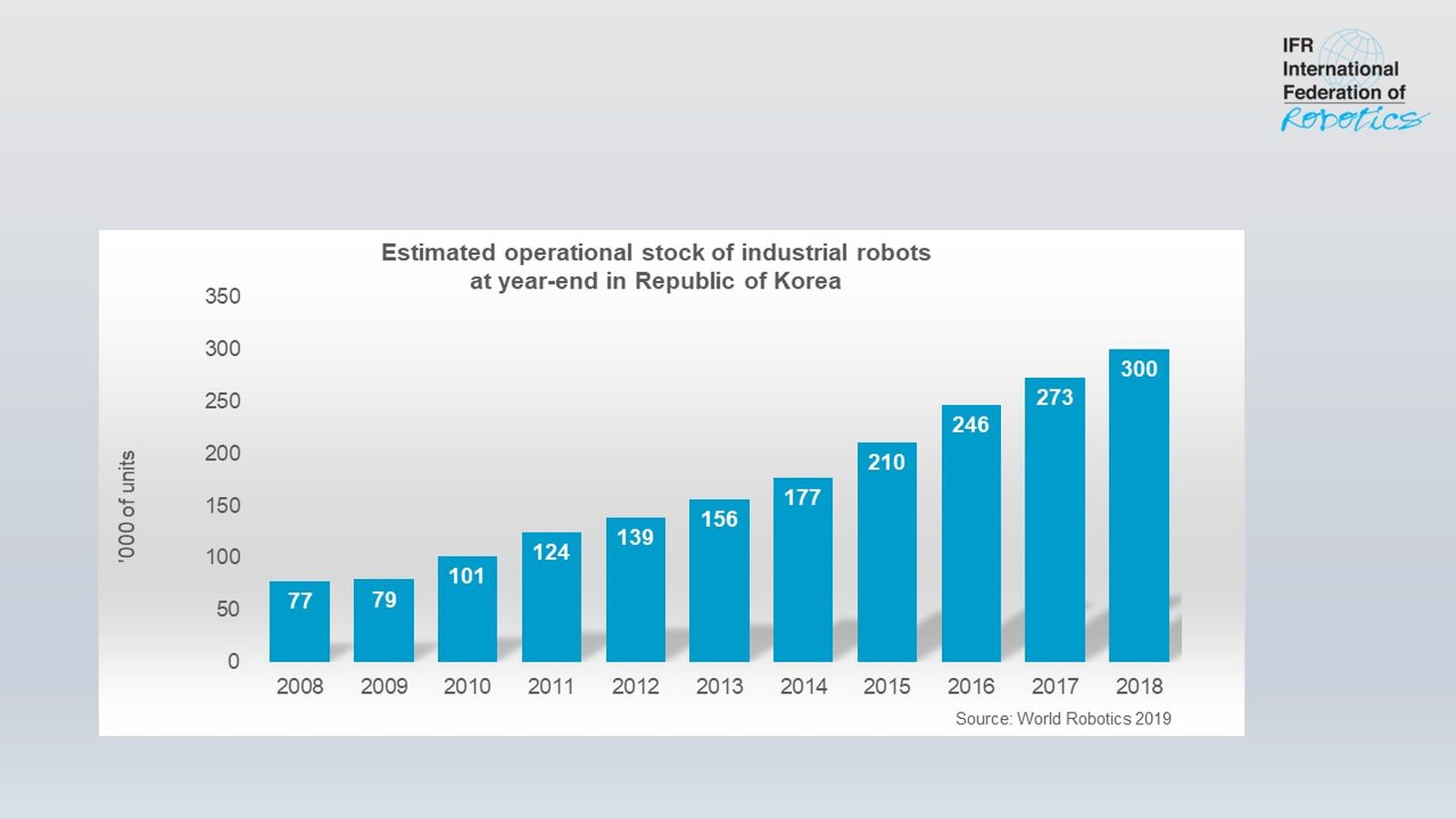
IFR updated its position paper on skills needed by the next generation to qualify for the new robotic jobs. As the world continues to face mounting labor shortages, robotics has emerged to address this challenge. In fact, the current global robot installations base is at an all-time high of around 4 million units.

Robots fill gaps
According to a report by World Economic Forum, automation with robots can help fill labor gaps and stretch scarce talent. In addition, ro-bots and automation contribute to a needed shift in the type of work that people do. They perform tasks that are difficult or dangerous for humans, such as heavy lifting or working in haz-ardous environments. However, it is important to note that the shift towards automation will re-quire upskilling and reskilling of the workforce.
Robots create jobs
It is a common misconception that robots will replace humans; research shows that they will instead alter existing jobs for the better while also paving the way for newer, more interesting positions. However, action must be taken by stakeholders including governments, busi-nesses, robot manufacturers, and educational institutes to ensure that the industry is properly equipped with resources to unlock next-gener-ation skills.
Download this and all other IFR position papers for free at https://ifr.org/papers






